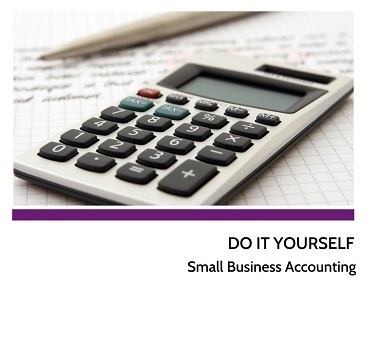With so many of the accounting processes now automated and manageable with online tools, it is very much possible to follow the DIY approach of Accounting. The tools are relatively basic and commonly available, and online learning resources abound. Whether you’re a freelancer keeping track of your clients or a startup business trying to make the most of your time and money, managing your own accounting is a helpful soft skill to add to your toolkit. Taking the time to do it yourself, if you’re able to stick with it and learn quickly, will give you a full picture of the financial side of your business and help you better understand what you need to do to grow the business. You’ll also save money and know your bookkeeping is in trusted hands – your own. Here’s a list of some small business accounting steps which will give you the confidence to know you’ve covered your basics.
- Bank Account: The first and foremost thing to start with is to open a bank account to stash your business income. Having a separate bank account keeps records distinct and make your life easier like for tax payments, vendor payments, receipts from payment gateways, receipt in cash or through cheque. LLCs, partnerships, and corporations are legally required to have a separate bank account for business. Before you talk to a bank about opening an account, do your homework. Shop around for business accounts and compare fee structures.
- Track your expenses: To start a business with a solid base, you need to know about your expenses, and what expenditures you incur the most. You should have a proper system of keeping all your bills and other important records. It’s a crucial step that allows you to monitor the growth of your business, build financial statements, keep track of deductible expenses, prepare tax returns, and support what you report on your tax return. Use a business credit card to pay for your expenses and link it with good accounting software; this way, you will not find yourself sorting through a bunch of receipts in your wallet.
- Put Personal and Business Expenses Apart: Just as how important it is to keep your business and personal life separate; it undoubtedly applies to your personal and business expenses also. It is challenging to manage the cash flow of your startup if you cannot view it separately.
- Accurately Record Income: Loans, revenue from sales and other cash infusions are easy to lose track of, but you need to keep tabs on all your incoming cash flow.
- Develop a Recordkeeping/Bookkeeping system: Bookkeeping means recording of your day to day transactions, categorizing them in their heads and reconciliation of banks with your accounts. You can choose to go the DIY route and use software likeQuickbooksor Tally, or you could use a simple Excel spreadsheet to maintain your accounts.
- Identify the method of Accounting: After establishing your system, you need to determine the basis of accounting you should follow in your business-
Cash Method: Income and Expenditure are recognised/booked at the time when they received or paid.
Accrual Method: Income and Expenditure are recognised/booked at the time when the transaction occurs irrespective of the fact, whether cash received for the particular transaction or not.
- Develop a payroll system: Your accounting software should also be able to help you calculate and pay your payroll taxes, which have different rules and deadlines than income taxes.
- Follow Up on Invoices and Receivables: Just because you’ve sent an invoice doesn’t mean you’ll get paid. Avoid overpaying on taxes and hours spent sifting through your revenue account and receivables listing by circling back with vendors who owe you money. Send invoices right after a job to increase the chances of prompt payment, and follow up with friendly reminders as the deadline approaches.
- Keep a track of your Taxes: There are some taxes which you need to take care as and when applicable on your business like Service Tax (if you are a service provider),
Sales Tax (if you are a Trader), Excise(if you are a manufacturer) and so on. These taxes needs to be taken care crucially as if this is not followed you need to end up paying high penalties and bear real punishment from the government. - Hire a professional (part-time): Hiring a professional bookkeeper or accountant, even for just a few hours per week or month, can make a big difference. The work of a bookkeeper and accountant overlap, though a bookkeeper is mainly concerned with recording and classifying income and expenditures.

